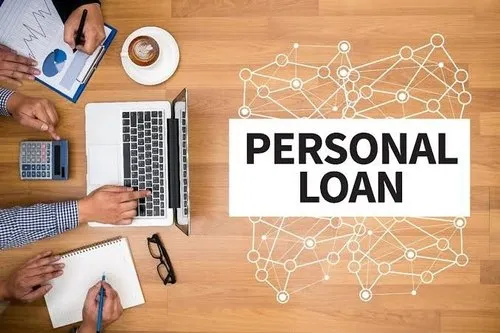Eligibility Criteria and Required Documents for a Personal Loan in India
In today's fast-paced world, personal loans have become a popular financial tool for individuals seeking immediate funds for various needs—be it a medical emergency, wedding expenses, home renovation, or travel. One of the reasons personal loans are favored is because they are unsecured, meaning you don’t need to pledge any collateral. However, to qualify for a personal loan, lenders in India evaluate applicants based on certain eligibility criteria and documentation. In this article, we will explore the standard eligibility conditions and the documents you need to apply for a personal loan in India.
What is a Personal Loan?
A personal loan is a type of unsecured loan that banks, NBFCs (Non-Banking Financial Companies), and digital lenders provide to individuals based on their income, credit score, repayment capacity, and other factors. These loans typically have a tenure ranging from 12 to 60 months and come with fixed or floating interest rates.
Eligibility Criteria for Personal Loan in India
While the eligibility criteria may vary slightly between lenders, the following are the most common factors considered when assessing a personal loan application:
1. Age of the Applicant
-
Most lenders require applicants to be at least 21 years old.
-
The upper age limit can go up to 60 years for salaried individuals and 65 years for self-employed applicants, depending on the lender’s policy.
2. Employment Type
-
Lenders categorize applicants into two groups: Salaried and Self-employed.
-
Salaried applicants must be employed with a government organization, MNC, or reputed private company.
-
Self-employed applicants should have a stable income from a business or profession.
-
3. Minimum Income
-
Income requirements vary based on city, occupation, and lender.
-
In metro cities, the minimum net monthly income required is usually around ₹25,000.
-
In smaller towns or cities, the threshold may be slightly lower—around ₹15,000–₹20,000.
-
4. Work Experience
-
Salaried individuals should have at least 6 months to 1 year of continuous employment.
-
Self-employed professionals are expected to have a minimum of 2–3 years of business continuity.
5. Credit Score
-
A CIBIL score of 750 or above is generally preferred by most lenders.
-
A good credit score indicates responsible financial behavior and increases the chances of loan approval at favorable interest rates.
6. Existing Loan Obligations
-
Lenders also assess your current EMIs and credit utilization.
-
A low Debt-to-Income (DTI) ratio, preferably under 40%, is ideal.
7. Residence Stability
-
Staying at the same address for a certain number of years (typically 1-2 years) is a sign of stability and can influence approval chances.
Required Documents for Personal Loan in India
Documentation is a crucial part of the personal loan approval process. Although documentation requirements may differ slightly between banks and NBFCs, the following is a standard list of documents typically required:
1. Identity Proof (Any one of the following)
-
Aadhaar Card
-
PAN Card
-
Passport
-
Voter ID
-
Driving License
2. Address Proof (Any one of the following)
-
Aadhaar Card
-
Utility Bill (Electricity, Water, Gas)
-
Passport
-
Rent Agreement (Registered)
-
Bank Statement showing address
3. Income Proof
-
For Salaried Individuals:
-
Latest 3–6 months' salary slips
-
Last 3–6 months' bank statement showing salary credits
-
Form 16 or Income Tax Returns (ITR)
-
-
For Self-Employed Individuals:
-
Last 2–3 years’ ITR with computation of income
-
Bank statements for the last 6 months
-
Business registration certificate (if applicable)
-
GST returns or Profit and Loss statement
-
4. Employment Proof
-
Offer letter or appointment letter
-
Employee ID card
-
Certificate of business existence (for self-employed)
5. Photographs
-
Passport-sized recent photographs (usually 2–4 copies)
6. PAN Card
-
A mandatory document for KYC and financial verification
Tips to Improve Your Chances of Getting a Personal Loan
-
Maintain a Good Credit Score
-
Pay credit card bills and EMIs on time.
-
Avoid multiple loan applications in a short period.
-
-
Apply Within Your Eligibility
-
Use online loan eligibility calculators to check how much you can borrow.
-
-
Choose the Right Lender
-
Different lenders have different eligibility norms; compare offers before applying.
-
-
Provide Complete and Correct Documents
-
Incomplete applications or document mismatches can delay or reject your loan.
-
-
Avoid High Debt-to-Income Ratio
-
Close smaller debts before applying for a large personal loan.
-
Conclusion
Personal loans offer a quick and convenient way to manage financial needs without pledging any assets. However, to ensure smooth approval, it's essential to meet the eligibility criteria and submit all required documents correctly. Whether you are a salaried employee or a self-employed professional, understanding these parameters can help you prepare better and avoid rejections. Always compare interest rates, processing fees, and prepayment charges before selecting a lender.
If you're in Delhi NCR and looking to apply for a personal loan, you can visit Loan7d.com for expert guidance, instant eligibility checks, and hassle-free documentation support. Our team works closely with all leading banks and NBFCs to get you the best deal.
